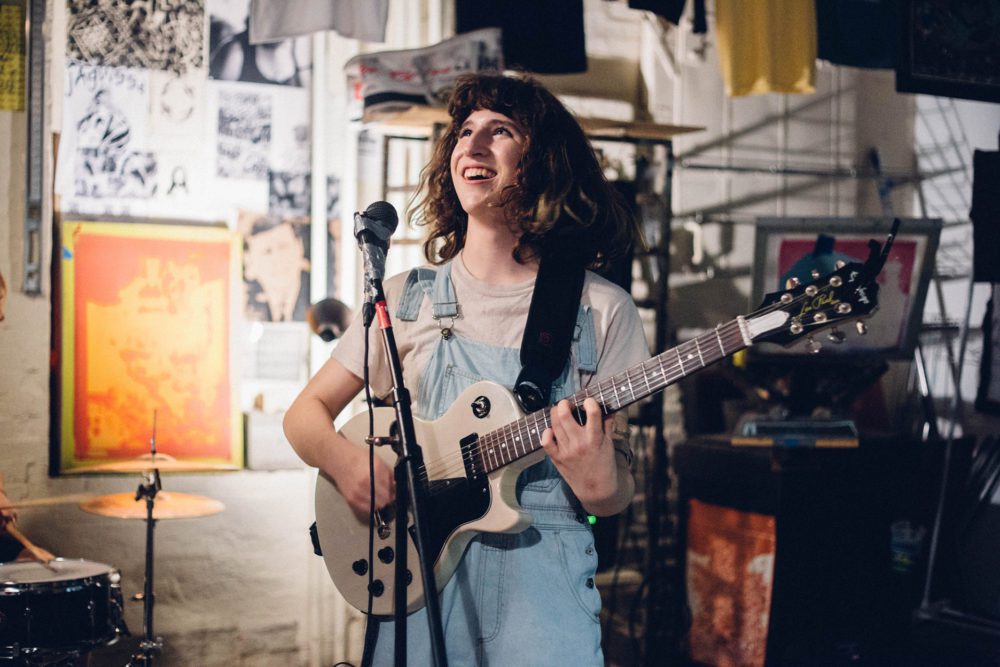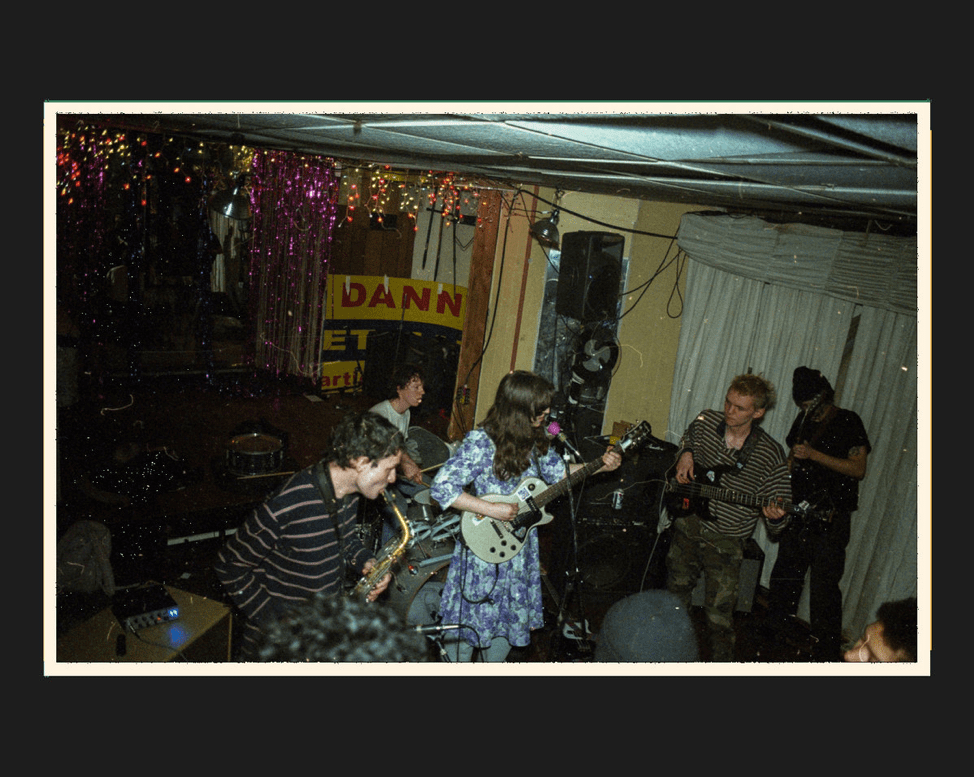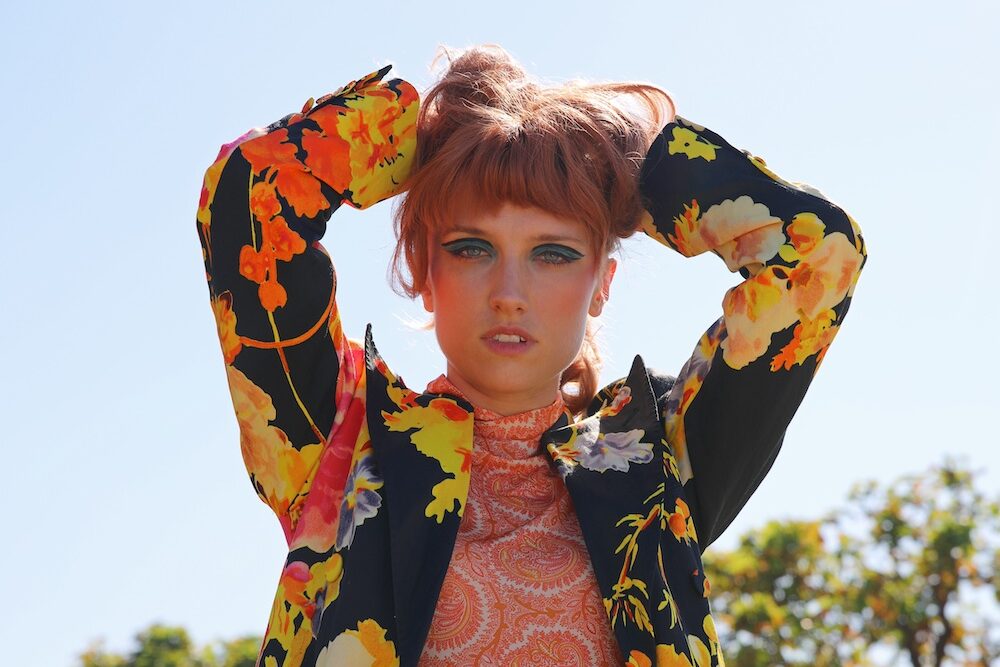
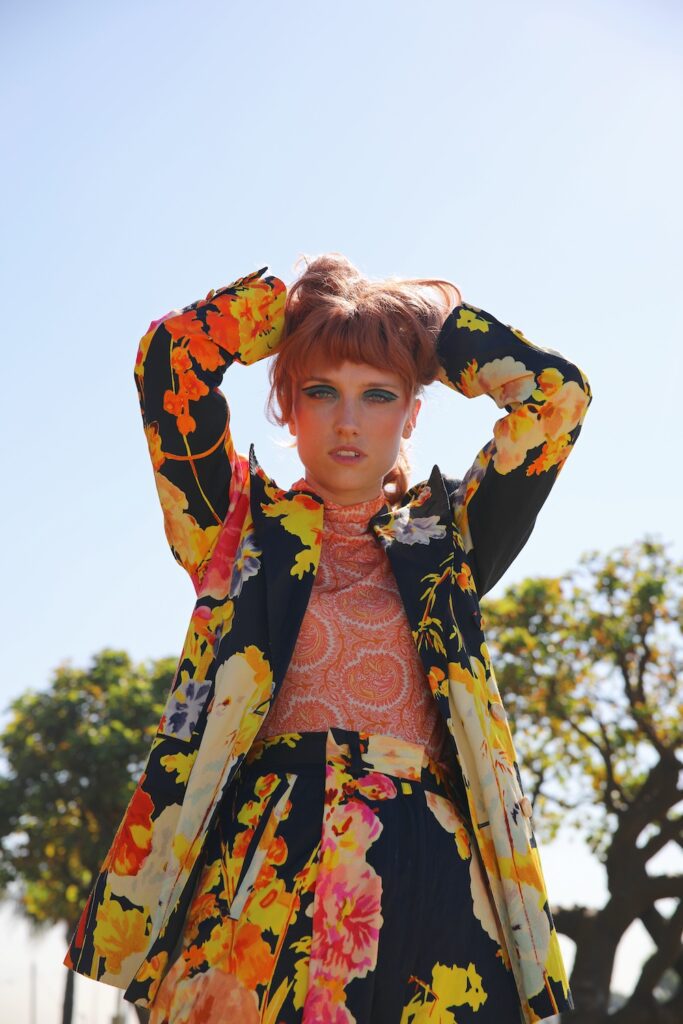
“This may be a record that literally nobody else gets or likes, or like, you know, is into,” says Katie Alice Greer, former vocalist of DC post-punk outfit Priests, of her first solo effort Barbarism, out today on Four Four Records. “But that’s okay, because I made it first and foremost for me.”
I first came to Greer’s music as a DC resident myself, when I saw Priests perform for the first time in 2013 as the opener at a Pygmy Lush show at the Pinch in Columbia Heights. In my mind, they ushered in a new era of the DC sound, such that it had been confined to hardcore for as long as I had been a part of it, and before that even. This was new, different, in many ways mind-blowing – I had never heard a band like this come out of DC. They forged a path forward for bands like Flasher, Gauche, and even Snail Mail (who’s from the Baltimore area, but this is a technicality) – all of whom put out releases on Priests’ Sister Polygon Records. Priests exploded into more national recognition with their debut full length Nothing Feels Natural in 2017 (coincidentally, the first album I ever covered for this very website). But enough about Priests.
They went on hiatus in 2019, and Greer relocated from DC to Los Angeles. This was her fresh start, and she was eager to collaborate with new artists. But then, given the timeline, I don’t have to tell you what happened.
“It was a really strange time to move here,” Greer says. “I think obviously that informed a lot of the process of the record as well. I never really set out for it to be a thing where I played and wrote every single thing on it, but just logistically, it was kind of how it turned out. It was really important for me to make something that didn’t feel informed by any external sense of what I thought anybody else would want to hear or what might seem cool, or resonate with other people.”
And so, she says, this is the “weird record that came out.” She balks that she hasn’t come up with a better elevator pitch for the record except to call it weird, but I think that’s fine – it is weird, which is part of its charm. It doesn’t sound like Priests even a little bit, but it doesn’t sound like anything else either. It’s rife with noisy industrial sounds, layered under Greer’s vocals, which jump all over the place. At times they’re sweet, nearly bridging the gap to hyperpop (notably on the opening track, “FITS/My Love Can’t Be”), which sounds interesting and textured against the harsh backing music. At other points it feels nearly reminiscent of something you might hear on a Sacred Bones record, haunting and ethereal like Marissa Nadler or SPELLLING. And in that sense, I could offer Greer a few more adjectives – rich, refreshing, and perhaps most importantly in the lens of what she set out to do, unlike anything I’ve heard lately.
Greer inhabits a unique space as a musician, in that she has no formal experience. This particularly informs her practice as a songwriter – she references the Werner Hertzog documentary Burden of Dreams as one of the few tangible influences on her process writing this album.
“It’s about him making this really epic movie in the jungle, in the Amazon, and how every single thing went wrong in the process,” she explains. “I think there were a lot of points in time while making the record where I just felt so totally lost in it, and I was completely frustrated by gear not working, or my computer being too full, or just you know, the world’s crumbling around me. Having felt like a lot of my internal world had crumbled or come to an end after this really significant aspect of my life was over and I moved away from what I considered home.”
During the height of the pandemic, Greer – and the rest of us for that matter – might as well have been in the Amazon like Hertzog. Many felt their individual worlds crumble in very individualized ways over the last few years, but what’s so special about Greer’s songwriting, in general and on this record in particular, is that while it feels personal, it never feels diaristic. While the feeling of isolation as familiarized by COVID is evident on this record, it’s not explicit. She approaches songwriting almost like a novelist or a filmmaker, defining her own feelings and building a character, a concept, a fantastical storyline around it.
“Thinking about music in these more visual, or cinematic ways just makes more sense for my brain,” she explains. “Diaristic, confessional songwriting is very hard for me. I don’t make work that way. But I can take things that I’m feeling or thinking about and get a little bit more imaginative, or like, blow those out of proportion, or try to write a different storyline around them.”
This visual, cinematic approach shines in the accompanying videos for the record, namely for the single “Captivated.” She notes David Lynch and photographer Alex Prager as influential to the album’s visual elements as well, an emphasis on the surreal that screams in this particular video. In it, a woman sees a plane flying backward, and Greer’s vocals fade in: “A mystery to be unraveled.”
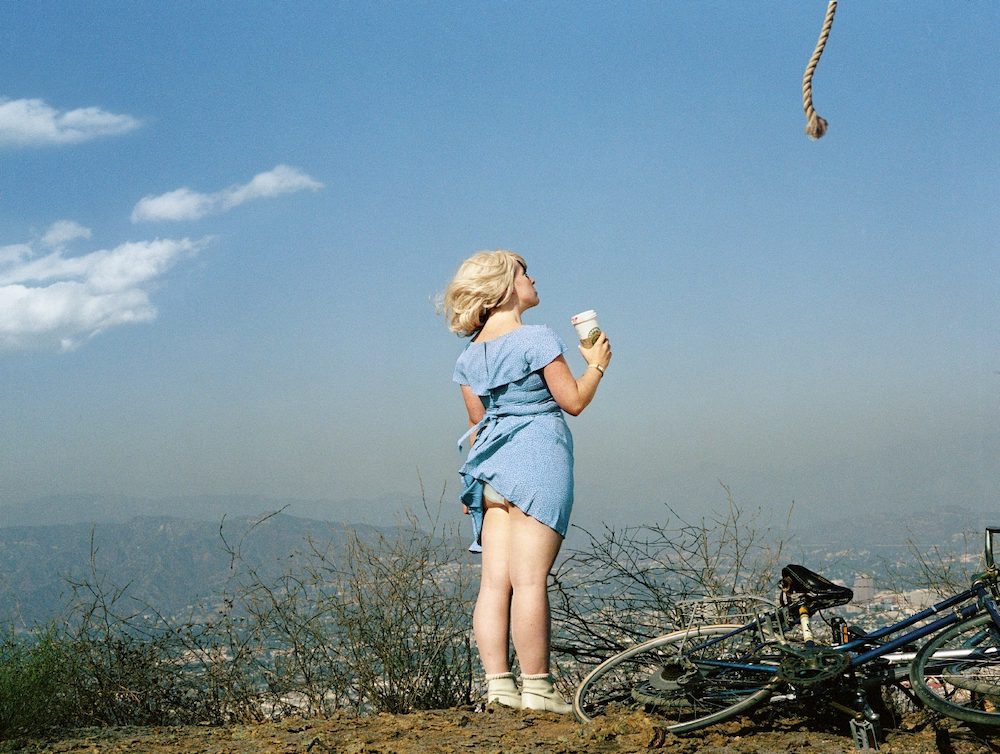
It’s a snapshot of sudden isolation, the world crumbling around you, everything going wrong when you’re lost in the wilderness. “She realizes that airplane just…flew backwards? Like, what’s going on in my brain?” Greer asks. “Is anybody else experiencing this? What’s happening? She’s maybe losing touch with reality, or maybe the world is, maybe this is an external thing. It’s hard to know.”
And in that, Greer’s personal experience, morphed into this fantastical storyline, reveals the universal. In these precarious times, it’s hard to know what’s real and what isn’t – are you going crazy, or is the world going crazy all around you? Greer’s Barbarism blurs the line to the extent that we might ask, does it even matter? Just go ahead and make the weird record, the one you wanted to make.
Follow Katie Alice Greer on Instagram and Twitter for ongoing updates.

